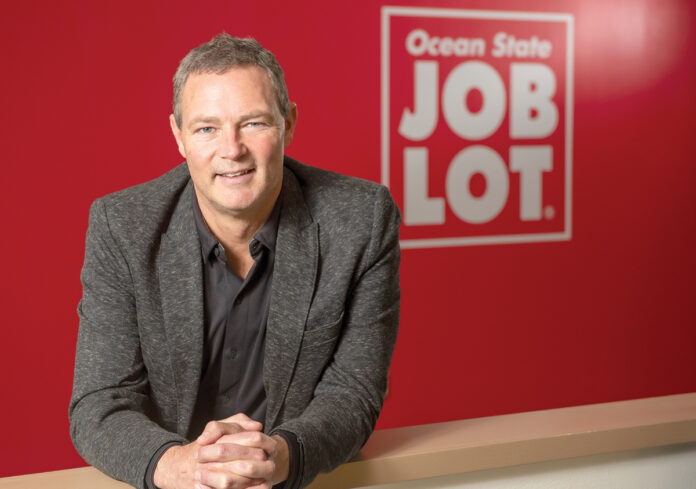
2022 C-Suite Awards: Enterprise company | Bob Selle, Ocean State Job Lot chief human resources officer
The job rewards for part-time workers are typically not rich in benefits and perks, but it’s a different story at Ocean State Job Lot.
The many benefits and forms of support for Job Lot employees, including part-timers, exist because of the convictions of the company’s owners.
In 2015, Job Lot leaders decided if the company was going to achieve its greatest potential – and to hire strong people willing to stay and grow in the company – it had to ramp up its human resources functions.
In this push to become an employer of choice, one early move was to elevate the head of human resources from director level to the C-suite. Then the company hired Bob Selle, who arrived with 25 years of experience in retail.
Now seven years into his position as chief human resources officer, Selle says CEO Marc Perlman told him that he “wanted to give back to the community and to have the employees feel valued.” Selle was “given the autonomy to build out the best-in-class HR department,” he said.
Job Lot is a privately held closeout retail chain headquartered in North Kingstown, with 147 stores across New England, New York, New Jersey and Pennsylvania, with about 5,800 employees and annual sales of more than $800 million.
Among the priorities Selle brings to human resources is the importance of treating workers as whole persons with families and communities, career paths, ideas and dreams. He also wanted to attract younger people with opportunities and benefits that were meaningful to them.
Paul Cox, Job Lot’s director of store operations, says a standout characteristic of Selle is his genuine compassion.
“He thinks about what it is like to be in the other person’s shoes,” Cox said. “Giving an opinion is easy. Giving time to understand a situation and then giving an opinion – that’s unique.”
Selle divided the work among three new HR divisions. The HR Operations division chose and deployed “trusted advisers” who reach out to all levels of the company.
The Centers of Expertise division concerns itself with training and helping people design their career journeys within the company.
“People want to grow,” Selle said. “This is leadership development and skills training.”
The new Experience and Engagement division is responsible for the “listening culture” that allows management to truly hear the views of workers. The company’s “We Are Listening” campaign encompasses surveys, orientations, exit interviews and more.
One small and quirky outcome of Job Lot’s listening efforts was to offer pet insurance, a thing of some importance to an upswell of Generation Y and Z employees, Selle said.
“Our world is changing fast,” Selle said. “You have to have great value as an employer to make people want to join and stay.”
By year end 2020, Selle said, Job Lot’s employee turnover had decreased to 45%, better than the national average of about 60%, according to the National Retail Federation.
About 50% to 60% of Job Lot’s staff are part-timers, Selle said. He led an effort to extend many benefits, including vision and dental coverage, to part-timers. In partnership with Care New England Health System, Job Lot opened a health clinic at its corporate office and distribution center. The clinic is accessible to all employees, whether or not they are on the company’s medical plan.
Noting recent news stories reporting that many American families do not have even $1,000 in savings, Selle said every Job Lot employee has access to a $10,000 life insurance policy. All receive a check every year representing a share of profits. All employees participate in the company’s profit participation.
When the COVID-19 pandemic was most active, Job Lot instituted rigorous cleaning and health practices, even hiring a director of safety, a safety manager for stores and a safety supervisor in distribution, along with raising the employee discount to 30% from 20%.
“If you really want to have a great brand, you cannot do it just by being known as philanthropic,” Selle said. “Your purpose must align with needs of people.”











